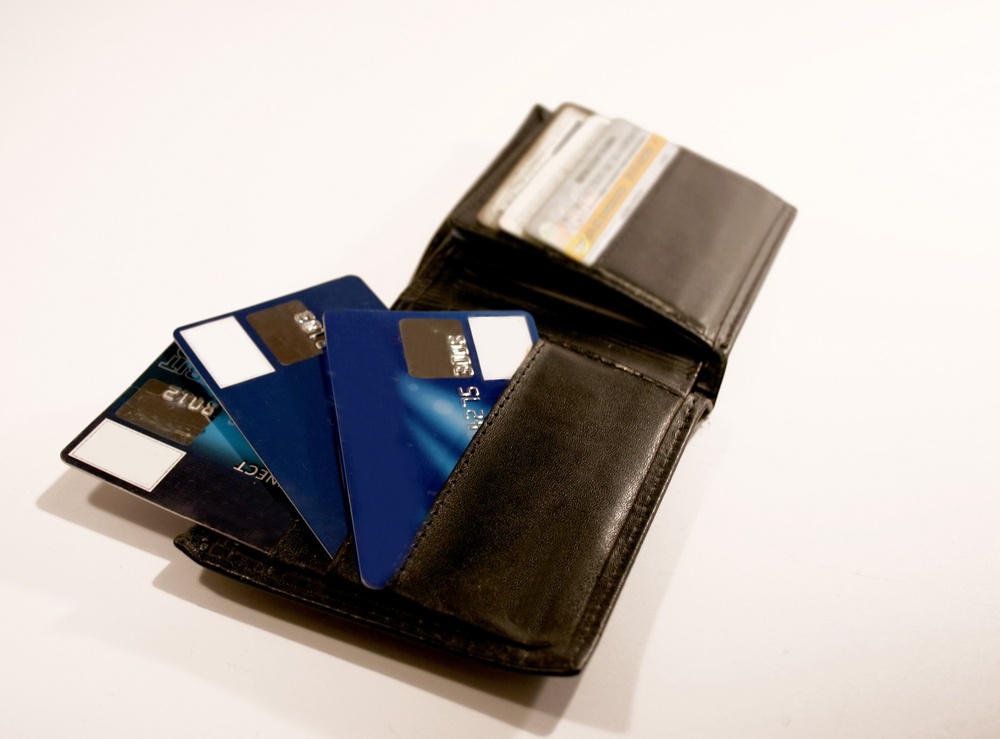How To Choose a Credit Card
Credit cards are a big responsibility. If you are thinking about getting a credit card, make sure it's the right one for you. While credit cards can...
5 min read
 Kamel LoveJoy
:
Jun 18, 2024 5:30:00 AM
Kamel LoveJoy
:
Jun 18, 2024 5:30:00 AM

Credit cards are a big responsibility, but using them effectively is a huge step toward financial stability. If you're thinking about getting a credit card, make sure it's the right one for you. This blog will cover various types of credit cards, who they are best suited for, and what to look for when choosing one.
Credit cards come with significant responsibility, but managing them wisely can greatly enhance your financial stability. If you're considering getting a credit card, ensure it suits your needs.
If you have no credit history or limited credit, a secured credit card is often the best option. These cards are specifically designed for individuals who are new to credit or looking to rebuild their credit.
Security Deposit: When you open the account, you make a cash deposit that serves as your credit limit. For example, a $300 deposit means a $300 credit limit.
Using the Card: Use it like a regular credit card, making purchases and paying the balance. Your activity is reported to the credit bureaus, which helps build your credit history.
Credit Limit Increases: Over time, some issuers may increase your credit limit without requiring an additional deposit if you demonstrate responsible credit behavior, such as making timely payments and keeping balances low.
Build Credit: Secured cards are one of the best ways to build or rebuild credit because they report to the credit bureaus.
Controlled Spending: The security deposit limits your spending, reducing the risk of accumulating debt.
Example: Imagine you’re just starting out and don’t have any credit history. You get a secured card with a $200 deposit. You use it for small, manageable expenses like groceries and gas, and you pay off the balance in full each month. Over time, your responsible use will improve your credit score, potentially qualifying you for a regular, unsecured credit card with better terms.
At our credit union, we offer the Classic Card, which is ideal for those building or rebuilding their credit.
It's important to manage your credit utilization effectively, which means using no more than 30% of your credit limit. For instance, if your limit is $200, try to keep your balance below $60. This responsible use helps improve your credit score over time.

Student credit cards are tailored for college students who might not have a steady income. These cards often have more lenient approval requirements, recognizing that students are just starting their financial journey.
Here are the Pros :
Flexible Approval Requirements: These cards might consider factors like your credit history, academic standing, and potential future income rather than just your current earnings.
Income Sources: If you're a student with income from scholarships, allowances, or part-time jobs, you can include these on your application.
Building Credit: Starting with a secured credit card or becoming an authorized user on a family member's card can help build your credit.
Low or No Annual Fees: A good student credit card often has low or no annual fees, making it more affordable.
Interest Rates: Be cautious about interest rates. Some student cards can have high Annual Percentage Rate (APRs), sometimes up to 29.99%, so it’s crucial to pay off your balance in full each month to avoid debt.
Regular credit cards, like our Platinum Card (and Classic Cards here), are typically for adults with a no credit history or damaged credit. Our Classic Cards often have lower APRs and higher credit limits compared to student cards, making them more suitable for individuals who are ready to start or fix there credit journey.
Press play for Nate’s quick tips on using credit cards vs. debit cards.
Store credit cards can be both beneficial and risky, so it’s important to weigh the pros and cons.
These cards are typically offered by retailers and provide additional benefits when used at the store in question.
Exclusive Offers: Store cards often come with special discounts and offers at the store, such as an initial discount on your first purchase and regular discounts thereafter. For example, if you frequently shop at a particular retailer, a store card could save you money on your purchases.
Rewards Points: Many store cards offer rewards points for purchases. Over time, these points can add up and be redeemed for store merchandise, similar to other rewards credit cards.
Credit Building: Using a store card responsibly by paying off your balance each month can help build your credit history and improve your credit score.

High Interest Rates: Store credit cards often have higher interest rates compared to regular credit cards. If you carry a balance, the interest can quickly add up, leading to significant debt.
Low Credit Limits: Store cards usually come with lower credit limits, which can restrict your spending and impact your credit utilization ratio.
Complex Terms: The terms and conditions can be complicated and may include fees that aren't immediately obvious. Always read the fine print to understand any potential charges, like annual fees.
If you’re a regular shopper at a particular store and can commit to paying off your balance each month, a store credit card can be a good tool. However, be mindful of the higher interest rates and potential fees.

Travel credit cards are fantastic for those who love to travel and want to make the most out of their spending. Here are some benefits and tips on maximizing them:
Sign-Up Bonuses: Many travel cards offer substantial sign-up bonuses if you meet a spending requirement within the first few months. For example, you might get 50,000 points if you spend $3,000 in the first three months.
Points on Purchases: Travel cards usually offer points or miles for every dollar spent. Some cards provide higher points for travel-related purchases, like flights and hotels.
Travel Perks: Benefits like free checked bags, priority boarding, airport lounge access, and travel insurance can make your travel experience smoother and more enjoyable.
Plan Your Spending: Use your travel card for all major expenses to reach the sign-up bonus threshold. For instance, use it for groceries, gas, and utility bills.
Redeem Points Wisely: Redeem your points for high-value travel rewards. Often, points are worth more when used for flights and hotels rather than merchandise or gift cards.
Leverage Travel Perks: Take advantage of the card’s travel benefits. For example, if your card offers free checked bags, always book your flights with that card to save on baggage fees.
While some travel cards come with annual fees, the benefits can outweigh the costs if you travel frequently. Look for cards that align with your travel habits and spending patterns to maximize the rewards and perks.
Avoiding high fees is crucial, especially for young adults managing a budget. Here are some key things to look for:
No Annual Fees: Many credit cards, especially those designed for students or new credit users, offer no annual fees. This can save you money each year.
Low APR: Look for cards with a low APR, especially if you think you might carry a balance. A lower interest rate means less interest paid over time.
No Foreign Transaction Fees: If you travel or make purchases from international retailers, avoid cards with foreign transaction fees, which can add up.
No Balance Transfer Fees: If you need to transfer a balance from a high-interest card, choose one that doesn’t charge a fee for balance transfers.
Additional Fees: Be aware of other potential fees, like late payment fees, over-limit fees, and cash advance fees. Reading the fine print will help you avoid unexpected charges.
Credit cards can significantly boost your financial stability when used responsibility. Its crucial to understand repayment terms, watch out for fees and get to know the perks. Whether you're building credit, a student, or a frequent traveler; there's a card that fits your needs. By selecting the right card and managing it wisely, you can pave the way to a brighter financial future.

Credit cards are a big responsibility. If you are thinking about getting a credit card, make sure it's the right one for you. While credit cards can...

Credit reports are an important determinant of a financial future, since the financial credibility of a person is often determined by their credit...

Just about every credit card issuer is offering rewards in one form or another these days. The issue is not whether you should be getting a reward...